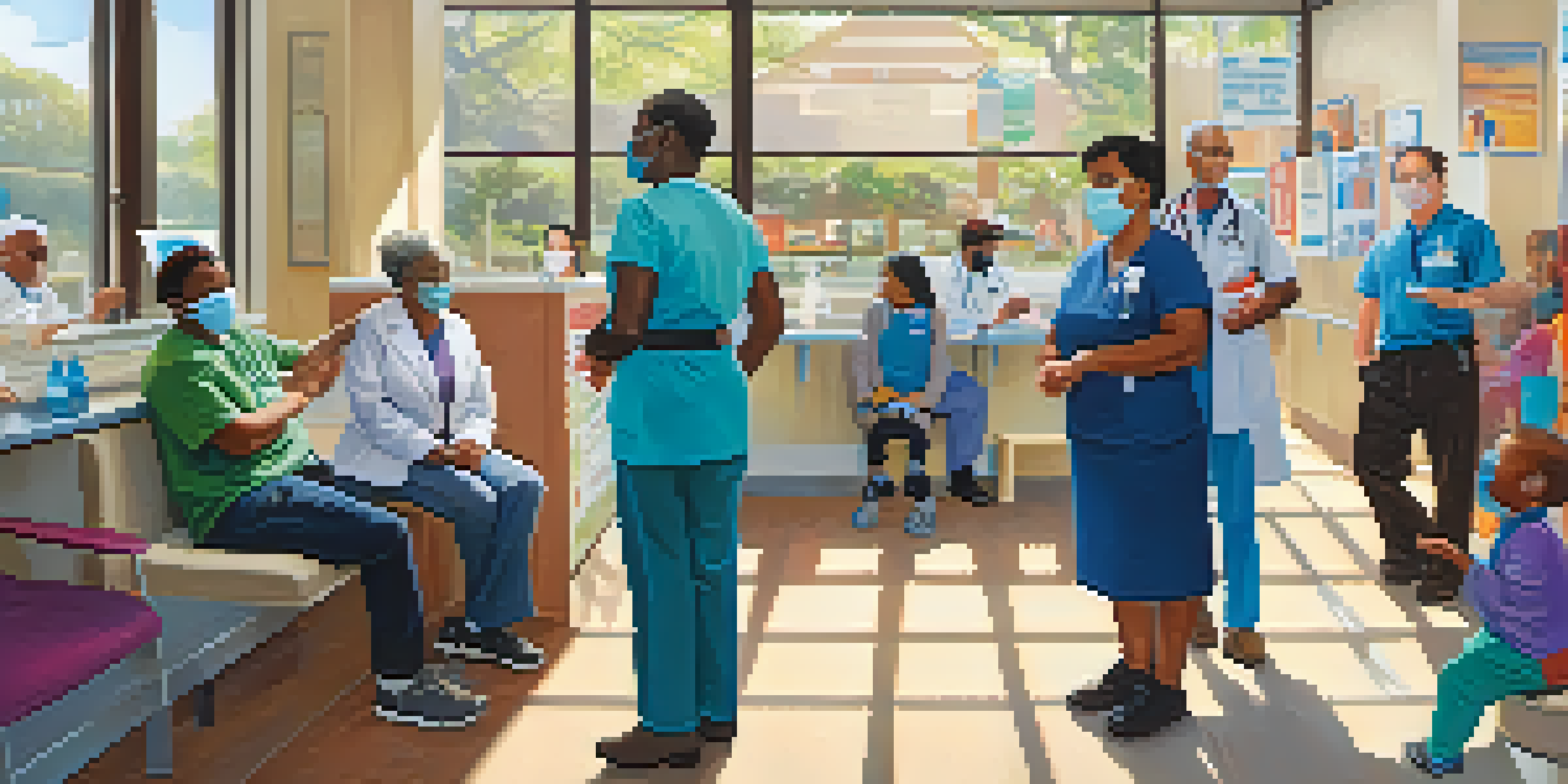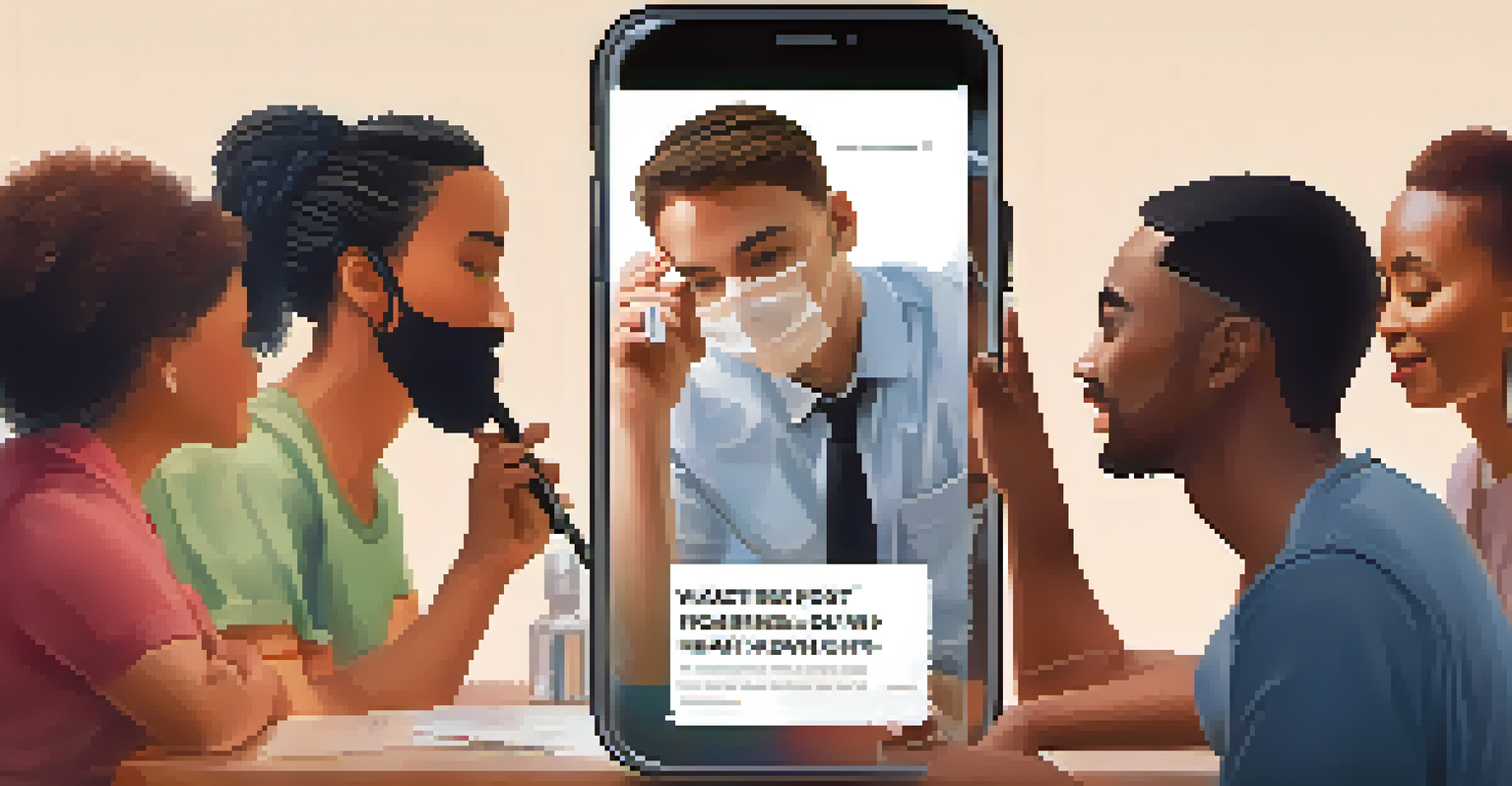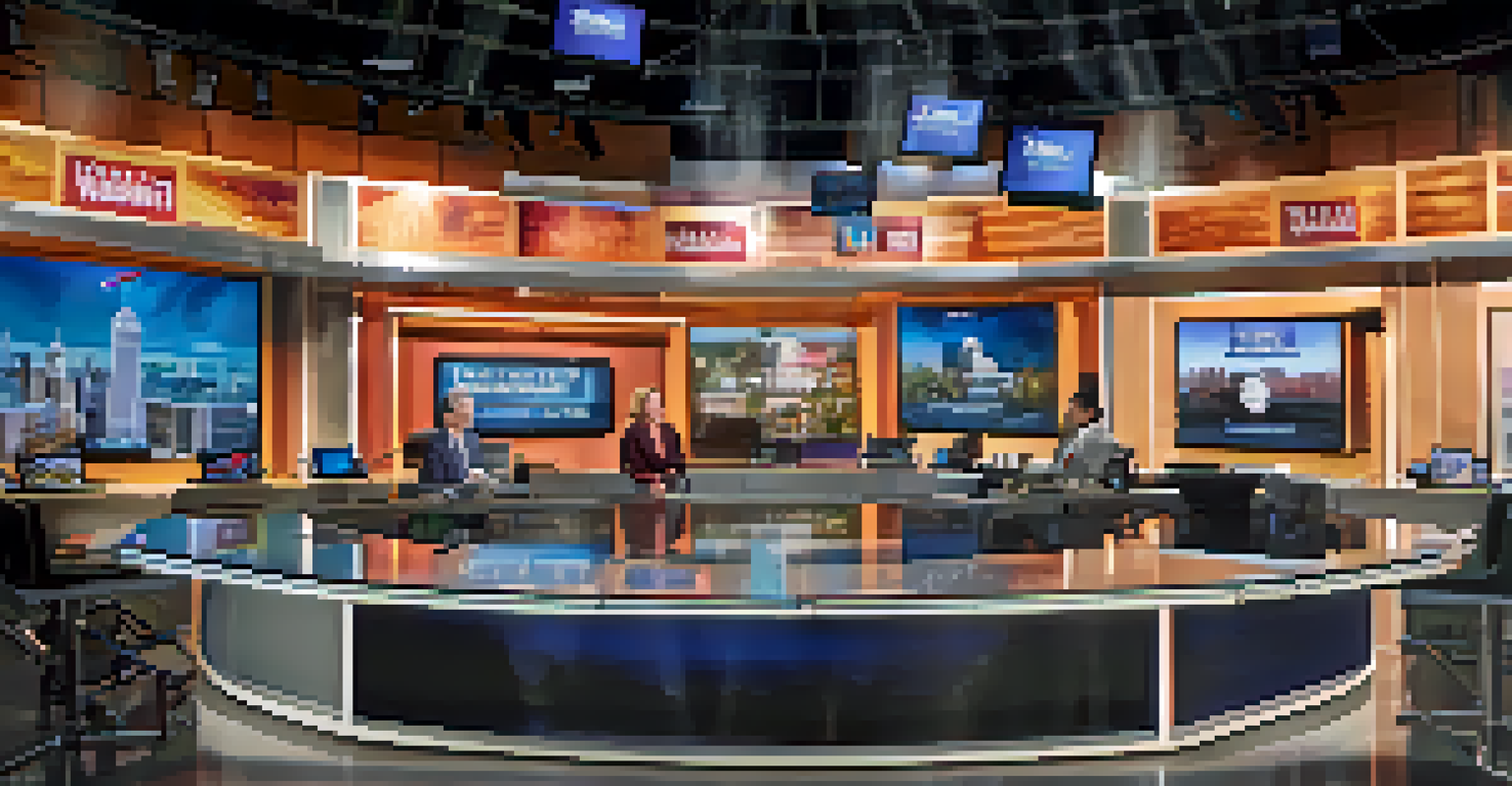The Role of Media in Shaping Vaccination Narratives

Understanding the Media's Influence on Public Opinion
Media plays a pivotal role in shaping public opinion, especially regarding health issues like vaccination. With the rise of social media, information spreads rapidly, influencing how people perceive vaccines. This influence can be a double-edged sword, as it can promote awareness but also spread misinformation.
The media’s role is not just to inform, but to shape the narrative around important public health issues like vaccination.
For instance, during the COVID-19 pandemic, social media platforms became battlegrounds for narratives about vaccine safety. Some posts exaggerated risks, while others highlighted benefits, leading to confusion among the public. This highlights the media's ability to sway perceptions, making it crucial to understand its impact on vaccination narratives.
Ultimately, understanding the media's influence helps us navigate through the noise and focus on credible sources of information. By promoting accurate narratives, we can foster a more informed public that is receptive to vaccination campaigns.
The Role of Social Media in Vaccine Narratives
Social media has transformed how information is shared, particularly in health communications. Platforms like Facebook, Twitter, and Instagram allow users to share their experiences and opinions on vaccinations. This grassroots sharing can amplify both positive and negative narratives about vaccines, often without any fact-checking.

For example, a personal story about a vaccine side effect can garner thousands of shares, potentially instilling fear in others. Conversely, influential figures sharing their vaccination experiences can help normalize the act, encouraging more people to get vaccinated. This dynamic illustrates how powerful social media can be in shaping public discourse around vaccines.
Media Shapes Vaccine Perceptions
Both mainstream and social media influence public understanding of vaccines, highlighting the need for credible information.
As such, it's essential for health organizations to engage with these platforms proactively. By providing accurate information and addressing misconceptions, they can steer conversations toward the importance of vaccinations and public health.
Mainstream Media's Role in Vaccine Education
Mainstream media, including television, newspapers, and online news outlets, plays an essential role in educating the public about vaccines. Through news reports, expert interviews, and investigative journalism, these outlets can highlight the importance of vaccines in preventing diseases. This authoritative voice can help counteract rumors and misinformation circulating online.
In the age of social media, trust in credible sources is more important than ever for public health.
During vaccination campaigns, news outlets often feature success stories and expert opinions, which can bolster public confidence in vaccines. For instance, showing data on vaccine efficacy and safety from reputable sources reassures hesitant individuals. This form of education is crucial in fostering a trusting relationship between the public and health authorities.
Moreover, mainstream media can also spotlight local vaccination efforts, encouraging community participation. By showcasing how vaccines save lives and protect communities, they contribute to a more informed and engaged public.
The Power of Celebrity Endorsements in Vaccination
Celebrities have a unique ability to influence public opinion, and their endorsements can significantly impact vaccination narratives. When well-known figures share their vaccination experiences, they can reduce vaccine hesitancy among their fans. This phenomenon is particularly evident in times of health crises, where celebrity voices can amplify critical health messages.
For instance, during the COVID-19 pandemic, numerous celebrities posted about their vaccinations on social media, helping to normalize the act. Their visibility reaches diverse audiences, making the message resonate more broadly. This use of celebrity influence demonstrates how a familiar face can help break down barriers to vaccination.
Celebrity Influence on Vaccination
Celebrity endorsements can effectively reduce vaccine hesitancy by normalizing vaccination through their wide reach.
However, the effectiveness of celebrity endorsements hinges on their credibility and authenticity. When embraced thoughtfully, these endorsements can serve as powerful tools in promoting vaccination and public health initiatives.
The Role of Misinformation in Vaccine Hesitancy
While media can educate, it can also spread misinformation, leading to vaccine hesitancy. False claims and conspiracy theories about vaccines often circulate widely, particularly on social media. This misinformation can cause confusion and fear, making individuals reluctant to get vaccinated.
For example, myths surrounding vaccine ingredients or alleged side effects can deter people from seeking vaccinations. The rapid spread of these false narratives often outpaces the efforts of health organizations to debunk them. This highlights the urgency for effective communication strategies to combat misinformation.
Addressing misinformation requires collaboration between media outlets and health authorities. By promoting fact-checking and responsible reporting, we can create a healthier discourse around vaccination, ultimately encouraging higher vaccination rates.
Community Engagement Through Local Media Outlets
Local media outlets play a crucial role in community engagement regarding vaccination efforts. They often serve as the bridge between health organizations and the public, providing relevant information tailored to local populations. By reporting on vaccination clinics or local health initiatives, they foster a sense of community involvement.
For instance, community radio stations or local newspapers can highlight the importance of vaccinations in preventing outbreaks, making the message more relatable. This localized approach helps address specific concerns that residents may have about vaccines. It also encourages people to share their own stories and experiences, creating a dialogue around vaccination.
Combating Misinformation Together
Collaboration between media outlets and health authorities is essential to counter misinformation and promote accurate vaccination narratives.
Engaging local media can also help build trust within communities. When people see familiar faces discussing vaccination benefits, they are more likely to feel connected and informed.
The Future of Media and Vaccination Narratives
As we look to the future, the role of media in shaping vaccination narratives will only grow in importance. With the constant evolution of technology and social media platforms, health organizations must adapt their strategies to reach audiences effectively. This includes leveraging new tools and trends to communicate the benefits of vaccinations.
Furthermore, ongoing collaboration between media professionals, health experts, and the public will be essential. By fostering an environment of transparency and dialogue, we can build a more informed community that understands the value of vaccines. This proactive approach can help mitigate misinformation and enhance public trust.

In conclusion, as the landscape of media continues to change, so too will the narratives surrounding vaccinations. By embracing the power of media, we can create a healthier society that champions vaccination for all.